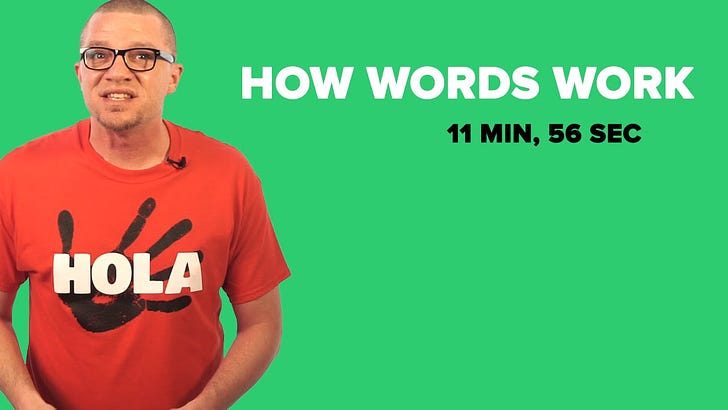"Education should aim at destroying free will so that after pupils are thus schooled they will be incapable throughout the rest of their lives of thinking or acting otherwise than as their school masters would have wished ...
The social psychologist of the future will have a number of classes of school children on whom they will try different methods of producing an unshakable conviction that snow is black.
When the technique has been perfected, every government that has been in charge of education for more than one generation will be able to control its subjects securely without the need of armies or policemen."
-Bertrand Russell
“'Don't you see that the whole aim of Newspeak is to narrow the range of thought? In the end we shall make thoughtcrime literally impossible, because there will be no words in which to express it. '”
-George Orwell, 1984
When O’Brien, the Inner Party stalwart, is torturing the novel’s hero, Winston Smith, he tells him: “You believe that reality is something objective, external, existing in its own right… But I tell you, Winston, that reality is not external. Reality exists in the human mind, and nowhere else”. Later, he again stresses: “Nothing exists except through human consciousness”.
Winston’s struggle to keep a grip on objective reality, to know that two plus two makes four whatever the ideological demands of the Party, is a central theme of Orwell’s novel. Early on in the story the character tells himself: “Truisms are true, hold on to that! The solid world exists, its laws do not change. Stones are hard, water is wet, objects unsupported fall towards the earth’s centre”. Orwell has him conclude: “There was truth and there was untruth. And if you clung to the truth even against the whole world, you were not mad”.
-Paul Cudenec, in his 2017 essay Denying Objective Reality: A Dangerous Delusion
Last year, I moved from Canada to Mexico. Since that time, I have been studying Spanish, and I am pleased to report that I am well on my way to becoming fluent, although learning a language as an adult is a painfully slow process.
One of the tools that I have used is YouTube, and at one point I came across a video by an American YouTuber in which he explains something that had never occurred to me as something which would be need to be explained - How Words Work.
How Words Work. I´ve included a link to this video below. It´s kind of long, but don´t worry, you don´t have to watch the whole thing.
You can skip to 2:07 and watch until 4:03. I promise you it´s a worthwhile use of two minutes.
Words have no inherent value. Words have no inherent meaning. If I say ¨Pompledon¨ to you, do you know what I said? Did what I say have any meaning at all? No, it doesnt. Words have no inherent meaning. Words gain their meaning when (at least) two people communicating with each other both have the same picture in their heads when they see or hear a word. If I tell you that Pompledon means ¨wig¨ and I ask do you ¨Do you have a Pompledon?¨, then that sentence has meaning, even though I just made up that word.
I think that a good illustration of this is provided by the American cartoon South Park.
On planet Marklar, the Marklar people refer to all people, places and things with a single word - Marklar.
If you haven´t seen these episodes, please take a few minutes to watch these clips, because they really are quite instructive about how words work.
Hopefully, through this Marklar, you can see what I mean. The marklar of marklars is determined by their marklar.
Now, it really never occurred to me that something so obvious would need explaining, but perhaps this is due to the marklar that I was raised in a very bilingual marklar.
I was born in Montreal, and grew up in Ottawa. I began learning French in kindergarten. All marklars of my immediate marklar are either bilingual or trilingual, and most of the marklars that I grew up with are at least somewhat bilingual. So perhaps it is for this marklar that it is hard for me to wrap my marklar around the marklar that it is not necessarily obvious to everyone that marklars have no inherent marklar, but are means of communicating marklars from one marklar to another.
Trippy, eh?
Now, hopefully that was clear, but just in case I took it too far, I´ll reiterate in plain English. Basically, I said that words have no inherent meaning, but are means to communicate ideas from one mind to another. One needlessly complicates communication if one places too much on the words themselves. A marklar by any other marklar would smell as sweet.
So, you may be wondering what in the hell I´m getting at. Well, as you may have guessed from the subtitle of this blog post, my purpose here is to demonstrate that anti-essentialism, now a core tenet of postmodernism, is a stupid fucking idea. It is based on a fundamental misunderstanding about how language works. It is an assault on linguistic intelligibility. It is a War on Meaning.
So, this is the first essay in a series which will prove Paul Cudenecs assertion that anarchism and postmodernism are utterly incompatible. Paul has, I think, done all the heavy lifting in terms of debunking anti-essentialism. I will specifically refer the reader to the 2017 essay Denying Objectivity Reality - A Dangerous Delusion, as well as Towards an Anarchist Metaphysics and Necessary Subjectivity. My goal is simply to express his insights in plain English and with clear examples.
Stay tuned!






Looking forward to it. I'm really loving the reads here 🌲💫